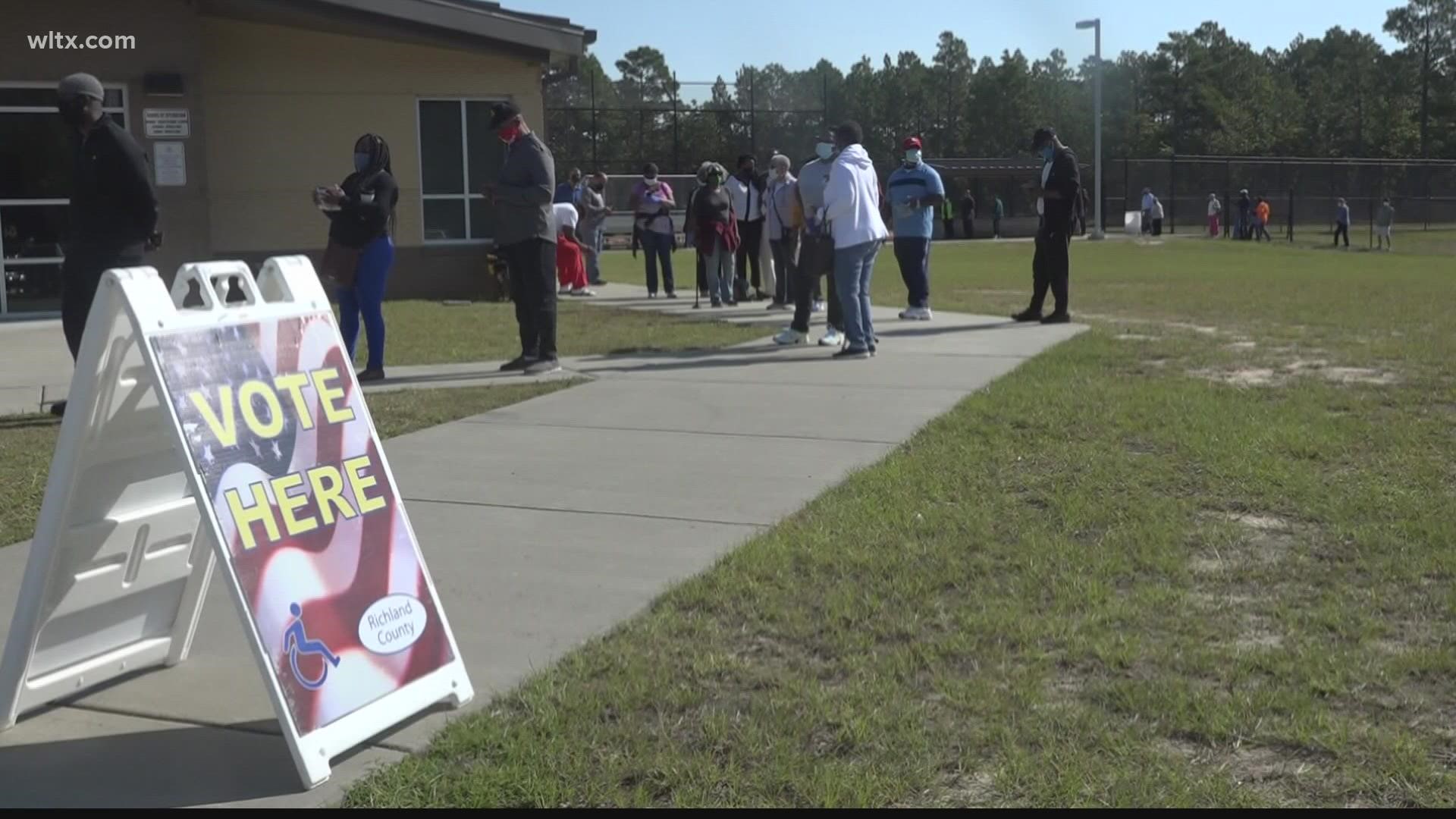COLUMBIA, S.C. — The South Carolina House on Wednesday unanimously approved allowing two weeks of early voting and other smaller changes to state election laws, uniting Democrats and Republicans on issues that have been contentious in other states.
The 114-0 vote sends the bill to the state Senate.
Democrats praised Republicans for listening to them and crafting a bill they could support, even if there were a few partisan votes on alterations like making voter fraud a felony and requiring audits of at least 5% of all votes in a county in the days after an election.
The subcommittee that crafted the bill did “a great job in a bipartisan effort to put a good bill together that we can all live with. I would ask you to please consider not messing the bill up with all these crazy amendments,” Democratic Rep. Leon Howard of Columbia asked his Republican colleagues.
And Republicans did help defeat changes that might have had Democrats vote against the entire bill like closing primaries to only party members or requiring a driver's license or voter ID number for witnesses who sign absentee ballots.
The biggest change in the bill would be to make South Carolina the 45th state to allow anyone to vote outside of Election Day without an excuse.
The state would have two weeks of early voting with polls open from 8:30 a.m. to 6 p.m. Monday through Saturday. A formula that takes into account the number of registered voters and the size of the county would decide the number of early voting sites.
For many years, South Carolina has allowed people to cast absentee ballots in person, but they had to include an excuse for why they couldn't be at the polls on Election Day. Under the proposal, the state would go back to mail-in absentee ballots and voters would now have to include the last four digits of their Social Security numbers when requesting the ballots.
The bill allows poll workers to open absentee ballots earlier with penalties if they report results and bans “fusion voting” where candidates can appear on the ballot under multiple political parties.
“This was truly the work of a lot of different people,” said Rep. Brandon Newton, the Lancaster Republican who helped shepherd the bill through the House.
The bill also would make voter fraud a felony, increasing fines and possible jail time for people who try to vote under a false name, vote more than once or poll managers who intentionally break the law.
The House did defeat an effort to eliminate voters from clicking on one box and voting a straight ticket for all their party's candidates. But the biggest fight came over whether to only allow voters registered with a political party to vote in that party's primary.
Currently primaries are open, so any registered voters can cast a ballot in the Democratic or Republican primaries.
“If you want to vote for a Republican nominee, you need to be in the Republican party,” said RJ May, a Republican from West Columbia. He said he was motivated by stories of members of the opposite party trying to cause chaos in open primaries.
But several Democrats and Republicans said in a state where the GOP dominates and the party divisions in counties are sharp, open primaries are key to keeping some sense of bipartisanship. In many races, the primaries are contested, while the major party candidate has no opposition in the general election.
Republican Rep. Kirkman Finlay said his mother is a staunch Democrat in very Democratic Richland County but she sure would like to vote for her son in the primary.
Republican Rep. Micah Caskey said his father also lives in Richland County, but is a supporter of Republican Rep. Nathan Ballentine and Democratic Sheriff Leon Lott.
Caskey said his dad would be disappointed to know when either of them leave office with closed primaries he would have no say in one of their replacements.
“I’m a Republican because of my value and I think in those terms because I'm a legislator," said Caskey of West Columbia. “There are a lot of people out there who don’t live in this isolated bubble where we think in partisan terms.”

